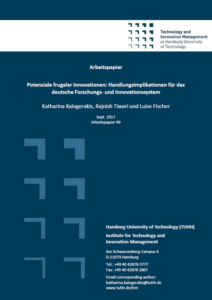New working paper by Rajnish Tiwari and Jaideep Prabhu: “Soft Power of Frugal Innovation and its Potential Role in India’s Emergence as a Global Lead Market for Affordable Excellence”
 In a fruitful cooperation between Center for Frugal Innovation (CFI) and the Cambridge Judge Business School, University of Cambridge, Rajnish Tiwari and Jaideep Prabhu have published a conceptual paper on the potential role of frugal innovations in contributing to “soft power” of its creators.
In a fruitful cooperation between Center for Frugal Innovation (CFI) and the Cambridge Judge Business School, University of Cambridge, Rajnish Tiwari and Jaideep Prabhu have published a conceptual paper on the potential role of frugal innovations in contributing to “soft power” of its creators.
An edited version of this paper is scheduled to appear as a chapter in a forthcoming book on Indian soft power by the Ananta Aspen Centre (AAC). The paper has been published in the Working Paper series of the TUHH Institute for Technology and Innovation Management. The project was initiated after being requested by the AAC to contribute a chapter to the aforementioned contributed volume in May 2017. The chapter was finally contributed in January 2018 and is now in the process of publication.
Abstract:

